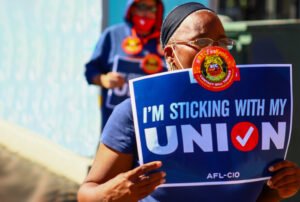February 9, 2012; Source: Politico | Will the deal negotiated by Sen. Scott Brown (R-Mass.) and his Democratic opponent, Elizabeth Warren, to reject campaign advertising from so-called independent third-party super PACs, 501(c)(4)s, and 501(c)(6)s get picked up and replicated by other politicians?
It looks like it might in Montana. Sen. Jon Tester (D-Mont.) has asked his opponent, Rep. Denny Rehberg (R-Mont.), to pledge to reject television and radio ads from third-party groups on their behalf, and to pay a substantial penalty if any groups do so.
Sign up for our free newsletters
Subscribe to NPQ's newsletters to have our top stories delivered directly to your inbox.
By signing up, you agree to our privacy policy and terms of use, and to receive messages from NPQ and our partners.
The cosponsor of the failed DISCLOSE Act, which would have made campaign expenditures by these third party groups a little more transparent, Tester told reporters, “Let’s let our campaigns do the work of highlighting our records and our differences, not shadowy organizations that don’t disclose where they get their funding, not groups that have no regard for the truth, and let’s put some skin in the game.”
Rehberg’s campaign manager called Tester’s proposal “interesting” and said that the campaign would “give it a close look and…respond in due course.” It was not quite the more enthusiastic dynamic between Brown and Warren in Massachusetts, but not an outright rejection either.
The stake for the nonprofit sector in ridding itself of its compliant role in secret campaign financing should be obvious by now. Under current rules, helped along by the Supreme Court’s Citizens United decision, (c)(4) social welfare organizations and (c)(6) trade associations can raise money from donors whose identities are kept secret from the public, and can then use that money to finance purportedly independent campaign spending on their own and by Super PACs. If Congress cannot get its act together to undo the damage of Citizens United (and the earlier Buckley v. Valeo decision), and if nonprofits themselves choose to defend 501(c) donor confidentiality even if it is being used to corrupt the American political process, then Warren/Brown-like (and hopefully Tester/Rehberg-like, if Rehberg agrees) pacts are necessary. Hopefully, their spread might lead to a public groundswell calling for comprehensive campaign finance reform. —Rick Cohen













